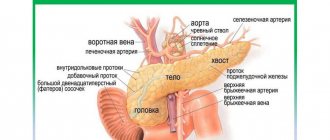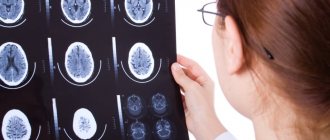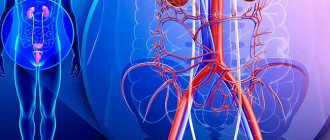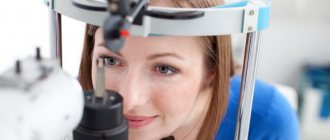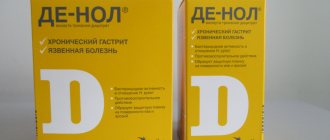Functional diagnostics is an important section of modern medicine. Data obtained using functional diagnostics organically complement the results of studies on the identification of somatic pathologies.
The most common methods are ECG (electrocardiography), spirography (respiratory function test), 24-hour ECG and blood pressure monitoring, EEG (electroencephalography), and stress tests. There are more complex studies that allow you to evaluate respiratory function, brain function, blood circulation, the state of the nervous system, and the heart.
As the name implies, the task of functional diagnostics is to detect various disorders in the work, and not in the condition of organs and systems. This section of diagnostic medicine is resorted to quite often: when there are difficulties in making a diagnosis, in the presence of a chronic or protracted disease, as well as to make an individual prognosis for the course of the disease. And studies such as ECG or EEG were carried out by almost everyone at least once - ECG - during a screening examination or during medical examination, and EEG - at the driver's commission.
Features of functional diagnostics
Doctors know for sure that all systems and organs are interconnected. For example, a change in the functional state of the nervous system entails a variety of symptoms. Often, without proper examination, it is impossible to make an accurate diagnosis.
Functional diagnostics becomes especially important in the case of ineffective treatment for a chronic disease or in the absence of visible somatic pathologies along with persistent patient complaints. Modern methods make it possible to find out how systems and organs cope with the load. Assessing the functional state of the cardiovascular, nervous and respiratory systems are the main objectives of the examinations.
It is extremely important to undergo examination under the supervision of a competent specialist - often the research results do not have an unambiguous interpretation. After all, each body’s systems and organs work differently. To make a diagnosis, you will have to take into account the anamnesis, clinical picture, and the results of functional tests. With the right approach, functional diagnostics allows you to clarify the diagnosis and develop an effective treatment strategy.
Preparing for the examination
ECG, ECG with exercise, bicycle ergometry, treadmill
- 4 hours before the test, do not eat or drink anything other than water.
- Do not drink or eat anything with caffeine 12 hours before the test.
- Do not take the following heart medications on the day of the test unless your doctor tells you otherwise or the medications are needed to treat chest discomfort on the day of the test: Isosorbide dinitrate;
- Isosorbide mononitrate;
- Nitroglycerine;
You may also be asked to stop taking other heart medications on the day of the test. If you have questions about your medications, ask your doctor. Do not stop taking any drug without first consulting with them.
Spirometry preparation
You should not smoke an hour before spirometry. You should also avoid drinking alcohol on this day. Eating too much can also affect your ability to breathe.
Avoid wearing clothes that are too tight, which may restrict your breathing. Your doctor may also receive instructions about whether you should avoid using inhaled medications or other medications before the test.
EEG preparation
- Avoid anything containing caffeine on the day of the test because it may affect the test results.
- Take your regular medications unless otherwise directed.
Other Precautions
- Wash your hair the night before or on the day of the test, but do not use conditioners, hair creams, sprays or styling gels. Hair products can make it difficult for the clips that hold the electrodes to stick to your scalp.
- If you must sleep during the EEG test, your doctor may ask you to sleep less or avoid sleeping the night before the test.
Electroneuromyography
No special preparation is required for this test.
Functional diagnostics in neurology
Electroencephalography (EEG)
- Cost: 2,800 rub.
- Duration: 10-20 minutes
- Hospitalization: Outpatient
More details
Electroencephalography (EEG) is the main diagnostic method in neurology. It consists of recording the electrical potentials of the brain. To conduct the examination, you need to attach electrodes to your head. On average, the study takes no more than 20 minutes. EEG is used in the diagnosis of almost all known functional pathologies of the brain - from tumors and vascular diseases to epilepsy. The method is also used in children to assess the condition of the cerebral cortex. At the CELT clinic, EEG is performed both according to indications and as part of a medical commission for drivers.
Echoencephalogram (EchoEG) is another method of studying the brain. The difference is that this is an ultrasound examination. Allows you to detect pathological changes not only in the cortex or midline structures, but also in the hard-to-reach periosteal space.
At CELT you can conduct functional diagnostics
- Electroencephalography (EEG) - 2,800
- Echoencephalography (EchoEG) – 1,200
Make an appointment
Electroneuromyography (ENMG)
- Cost: 8,400 rub.
- Duration: 30-40 minutes
- Hospitalization: outpatient
More details
Electroneuromyography (ENMG) and electromyography (EMG) are a method of electrophysiological research that allows assessing the usefulness of neuromuscular transmission, the degree of electrical excitability of muscles and the functional state of the peripheral nerve, that is, determining the speed of passage of the nerve impulse, which objectively assesses the function of peripheral nerves and muscles. The method allows us to determine the cause of the disturbance in the interaction of the peripheral nerve and skeletal muscle.
Registration of acoustic brainstem evoked potentials (ASEP)
- Cost: 3,000 rub.
- Duration: 30 – 60 minutes
- Hospitalization: outpatient or up to 2 hours in hospital
More details
Registration of evoked potentials is a group of methods for recording this very activity that occurs in response to targeted stimulation of any receptors: visual (VEP), auditory (or acoustic - ASEP), cutaneous sympathetic (SSEP), somatosensory (SSEP), cognitive and others. Helps assess the functional state of certain centers in the brain and the state of the pathways.
Indications
Indications for functional diagnostics are various dysfunctions of a particular organ. Some studies (for example, ECG) are recommended to be carried out regularly for all adults for preventive purposes.
Diseases that are detected using functional diagnostic methods:
1. ABPM:
- arterial hypertension
- arrhythmias
- fainting states
- hypotension
2. HOLTER:
- arrhythmias
- IHD (coronary heart disease)
3. EEG:
- stroke
- brain tumors
- vascular dementia
- epilepsy
- encephalitis
- traumatic brain injury
- multiple sclerosis
- cerebral palsy
- Parkinson's disease
- Alzheimer's disease
4. ENMG:
- radiculitis
- spinal cord injuries
- spondylosis
- multiple sclerosis
- polio
- cerebral palsy
- Parkinson's disease
- myopathies
- myasthenia gravis
5. ECG:
- myocardial infarction
- myocarditis
- IHD (coronary heart disease)
- pericarditis
- angina pectoris
- cardiac aneurysm
- arrhythmias
- various conduction disorders
6. ECHO-KG:
- heart defects
- heart failure
- IHD (coronary heart disease)
- infective endocarditis
- pulmonary hypertension
- cardiomyopathy
7. Spirometry:
- pneumonia
- tuberculosis
- bronchitis
- COPD (chronic obstructive pulmonary disease)
- flu
- bronchial asthma
Functional diagnostics in cardiology
Electrocardiogram (ECG)
- Cost: 1,300 rub.
- Duration: 15 minutes
- Hospitalization: does not require hospitalization
More details
Electrocardiography (or ECG) is the main and most important diagnostic method in cardiology. Despite the fact that this research has been carried out for decades, it has not lost any of its relevance. This is the main purpose for suspected heart attacks, complaints of heart rhythm disturbances, as well as for making a prognosis for any heart disease.
Holter ECG
- Cost: 5,400 rub.
- Duration: 24/48 hours
More details
Daily Holter ECG monitoring is another indispensable method. From the name it is clear that daily monitoring of ECG readings is carried out. Recording for 24 or 48 hours allows you to assess the functioning of the cardiovascular system during the patient’s usual activities. Errors and inaccuracies that may arise from excitement in the hospital during a routine ECG examination or for other reasons are excluded. Main indications: complaints of pain in the heart area, pulse irregularities, frequent fainting. The method allows you to reliably diagnose coronary artery disease, arrhythmia, and determine indications for drug or surgical treatment.
24-hour blood pressure monitoring
- Cost: 3,000 rub.
- Duration: 1 day
- Hospitalization: outpatient
More details
The same method is used for 24-hour blood pressure monitoring (ABPM). Monitoring will require the patient to wear a special device that will record pressure throughout the day. He will have to mark periods of activity and rest, make notes about his health, food intake and medications. In this case, the study turns out to be extremely informative and allows you to diagnose hypertension and hypotension and evaluate the effectiveness of the prescribed treatment.
Stress echo-CG
- Cost: 10,500 rub.
More details
Stress echocardiography (Stress EchoCG) is an ultrasound examination that allows you to diagnose signs of ischemia that appear under conditions of increased stress. The good thing about this method is that it allows you to determine the pathology even before the full clinical picture appears, before the development of coronary artery disease. Allows you to diagnose early manifestations of coronary artery disease, evaluate the effectiveness of treatment, and assess the need for surgical intervention.
Treadmill test
- Cost: 4,900 rub.
- Duration: 30-40 minutes
- Hospitalization: does not require hospitalization
More details
A treadmill test or stress test is an ECG performed during physical activity. Allows you to evaluate the response of the cardiovascular system to physical stress. If you have heart or vascular disease, this test will show the threshold at which the first symptoms appear. In addition, based on the results, it is possible to make a prognosis for the course of the disease and assess the severity of the disease.
Transesophageal atrial stimulation (TEES) is a method that is used to diagnose occult coronary insufficiency in patients with previously diagnosed coronary artery disease. During the examination, a flexible probe is installed in the patient’s esophagus; it is inserted through the nose. The sensation may be uncomfortable, so if necessary, the doctor will treat the root of the tongue with an anesthetic. The thickness of the probe is only a few millimeters, so most patients tolerate this procedure well.
Contraindications
Functional diagnostic methods do not harm the patient’s health and have no age restrictions. It is not necessary to conduct exercise tests if the patient has an acute infectious disease, which is accompanied by an increase in temperature.
Spirometry is not performed in patients with pulmonary hemorrhage, stroke, heart attack, or high blood pressure. It is recommended to postpone the examination if the patient has open wounds or injuries to the parts of the body where electrodes need to be applied.
The presence of a pacemaker in a patient can significantly distort the ECG results, which the specialist must take into account when conducting the study. If the patient takes any medications on an ongoing basis that may affect the reliability of the study (antiarrhythmics, bronchodilators, sedatives and a number of others), then it is necessary to tell the specialist who will perform the procedure about this in advance.
Respiratory function test
External respiration function
- Cost: 2,200 rub.
- Duration: 10 – 20 minutes
- Hospitalization: Outpatient
More details
In the CELT clinic, to diagnose respiratory diseases, a study of external respiration function is carried out, including an inhalation test. Another name for the method is spirometry. It is quite simple, but at the same time one of the most informative. It is used both to assess the condition of healthy people and in patients with diseases of the respiratory system. Recommended for risk groups: allergy sufferers, people with a predisposition to asthma, and smokers. Spirometry is often prescribed before surgery under endotracheal anesthesia.
In Moscow, a modern department of functional diagnostics operates at the CELT clinic. Expert class equipment, qualified and attentive specialists are the key to an accurate diagnosis and good health.
Complete training
The Interregional Academy of Industrial and Construction Complex (MASPK) invites students to take professional retraining courses in the field of “Functional Diagnostics”.
The Academy's resources make it possible to remotely train thousands of specialists from all regions of Russia. Our training programs are compiled with the participation of leading experts in their field and are regularly updated, which allows our graduates to successfully implement themselves in the profession. The Interregional Academy of Additional Professional Education (MADPO) conducts regular enrollment in additional professional education courses in the specialty “Functional Diagnostics”. We offer professional retraining and advanced training in a distance format according to an individually agreed schedule, a modern educational and methodological base and standard documents upon completion of training. Training in the “Functional Diagnostics” program at the Medical University of Innovation and Development (MUIR) is a modern educational program for medical specialists that allows you to complete training in the shortest possible time and without interrupting work. The University's courses are delivered both part-time and distance learning and fully comply with both educational and professional standards in the field of additional vocational education (additional vocational education). The National Academy of Modern Technologies (NAST) implements additional education programs and invites specialists to undergo professional retraining in the field of “Functional Diagnostics”. The Academy's training programs involve the use of distance technologies, which allows our students to receive education without interruption from their main activities in the most comfortable mode. The career guidance center for medical personnel of senior and middle management MEDICALEDU invites you to undergo professional training in the specialty “Functional Diagnostics”. Timely receipt of additional professional education allows you to timely pass certification events and continuously improve in your profession. The training format for professional retraining courses is distance learning. Author of the article
Yurkin Alexey
Functional diagnostic services at CELT
The administration of CELT JSC regularly updates the price list posted on the clinic’s website. However, in order to avoid possible misunderstandings, we ask you to clarify the cost of services by phone: +7
| Service name | Price in rubles |
| Pulmonary function test | 2 200 |
| Electrocardiography (ECG) before consultation with a CELT cardiologist | 700 |
| Electromyography (EMG) needle | 5 200 |
All services
Make an appointment through the application or by calling +7 +7 We work every day:
- Monday—Friday: 8.00—20.00
- Saturday: 8.00–18.00
- Sunday is a day off
The nearest metro and MCC stations to the clinic:
- Highway of Enthusiasts or Perovo
- Partisan
- Enthusiast Highway
Driving directions
Types of diagnostic procedures
The functional diagnostics room offers a range of laboratory and instrumental studies:
- Electrocardiography;
- Echocardiography;
- Monitoring blood pressure levels throughout the day;
- Bicycle ergometry (load test) and others;
- Holter monitoring ECG.
- Available: doctor’s appointment from 1500 rubles
- Convenient: open daily from 8:00 to 21:00
- Quickly: we will carry out all the diagnostics at the first appointment
- Complete: has all the necessary equipment

